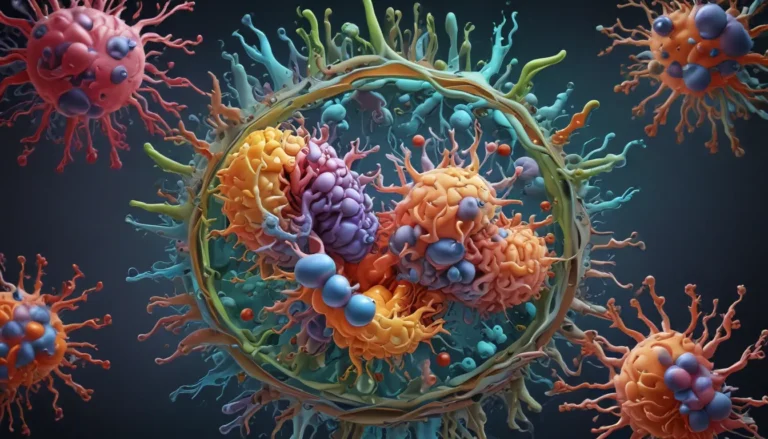A Note About Images: The images used in our articles are for illustration purposes only and may not exactly match the content. They are meant to engage readers, but the text should be relied upon for accurate information.
When it comes to the realm of chemistry, the concept of dilution often seems like a straightforward process of adding water to reduce concentration. However, beneath this seemingly simple procedure lies a plethora of hidden facts waiting to be explored. In this article, we will delve into 13 surprising facts about dilution that will broaden your understanding of this fundamental concept in chemistry and its diverse applications. From its role in pharmaceutical formulations to its impact in DNA analysis, dilution proves to be a versatile and essential concept that extends far beyond basic mixing. So, let’s embark on a journey to unravel the mysteries of dilution and discover the fascinating aspects that make it an integral part of the chemical world.
Exploring the Versatility of Dilution
Dilution, a process often overlooked, plays a critical role in various fields, including laboratories, pharmaceuticals, and household cleaning. It affects reactions, creates standard solutions, and influences DNA analysis and heat transfer. Understanding dilution is paramount for a wide range of applications, from scientific research to everyday chores. Let’s uncover the intricate details of dilution and its significant impact across different domains.
Dilution in Laboratory Experiments
In scientific research, dilution serves as a fundamental technique to manipulate the concentration of substances. Scientists frequently employ dilution to achieve desired experimental conditions or determine unknown concentrations. By adjusting the concentration of solutions, researchers can observe the effects of varying concentrations on specific systems, enabling comprehensive analysis and experimentation.
Essential for Creating Standard Solutions
Standard solutions, characterized by precisely known concentrations, play a crucial role in chemical analysis and calibration. Dilution serves as a vital tool in preparing standard solutions by accurately reducing the concentration of a stock solution. This practice ensures consistency and accuracy in analytical procedures, allowing for reliable measurements and calibration of instruments.
Impact on Reaction Rates
The rate of a chemical reaction can be significantly influenced by dilution. Increasing the volume of a solution through dilution reduces the concentration of reactants, thereby altering the reaction kinetics. Understanding the relationship between dilution and reaction rates is essential for predicting and controlling chemical processes in various applications, from pharmaceutical formulations to environmental analysis.
Role in Pharmaceutical Formulations
In the pharmaceutical industry, dilution plays a crucial role in creating drug formulations with specific concentrations. By accurately diluting active ingredients, pharmaceutical companies ensure precise dosing, minimize side effects, and enhance patient safety. Dilution is a key process in pharmaceutical manufacturing, contributing to the development of effective and well-tolerated medications for various medical conditions.
Involvement in Environmental Analysis
When studying water quality or analyzing environmental pollutants, dilution is frequently employed to minimize the concentration of potentially harmful substances. This practice allows researchers to conduct accurate assessments of water quality, assess pollution levels, and calibrate analytical instruments. Dilution plays a pivotal role in environmental analysis by facilitating the accurate detection and measurement of contaminants in environmental samples.
Significance in Homeopathy
Homeopathy, an alternative system of medicine, relies on the principle of dilution for preparing remedies. Remedies are often created through serial dilution and succussion, based on the belief that highly diluted solutions can elicit therapeutic effects. The practice of dilution in homeopathy highlights the intricate relationship between dilution and efficacy, showcasing the diverse applications of this fundamental concept in unconventional medical practices.
Central to Food and Beverage Industry
Within the food and beverage industry, dilution is a prevalent practice during manufacturing processes. Companies often dilute products to achieve desired taste, consistency, or nutritional values. From beverages to sauces, dilution plays a key role in product development and quality control, ensuring that consumers enjoy products that meet their taste preferences and nutritional requirements.
Impact on Chemical Equilibrium
In reversible chemical reactions, dilution can influence the equilibrium position by altering the concentrations of reactants and products. This phenomenon is particularly significant for reactions governed by Le Chatelier’s principle, where changes in concentration can shift the equilibrium towards the formation of products or reactants. Understanding the impact of dilution on chemical equilibrium is essential for predicting and controlling reaction outcomes in various chemical processes.
Contribution to DNA Analysis
In DNA analysis techniques such as polymerase chain reaction (PCR), dilution is utilized to adjust the concentration of DNA samples. By precisely diluting DNA samples, researchers can optimize amplification and sequencing processes, facilitating accurate genetic analysis and profiling. Dilution plays a critical role in molecular biology and genetic research, enabling the manipulation and analysis of DNA samples with precision and efficiency.
Role in Pharmacokinetics
Pharmacokinetics, the study of drug absorption, distribution, metabolism, and excretion, relies on dilution methods to determine drug concentrations in biological fluids. By employing dilution techniques, pharmacologists and healthcare professionals can accurately measure drug levels in the body, assess drug kinetics, and optimize therapeutic regimens. Dilution is an essential tool in pharmacokinetic studies, ensuring the safe and effective use of medications in clinical practice.
Utilization in Instrument Calibration
Analytical instruments such as spectrophotometers and pH meters require calibration using standard solutions prepared through dilution. By diluting stock solutions to specific concentrations, researchers can calibrate and validate analytical instruments, ensuring accurate and reliable measurements. Dilution is a critical step in instrument calibration, enabling researchers to maintain the precision and accuracy of analytical techniques in various scientific disciplines.
Mechanism of Heat Transfer
In the realm of heat transfer, dilution serves as a mechanism to control the temperature of a system. By adding cooler or hotter substances to a mixture, the overall temperature can be adjusted through dilution. This process of heat transfer through dilution enables researchers and engineers to regulate temperature gradients, optimize thermal processes, and enhance energy efficiency in various applications, from industrial processes to environmental control systems.
Common Practice in Household Cleaning
When it comes to household cleaning, dilution is a common recommendation to achieve optimal effectiveness and safety. Diluting concentrated cleaning agents helps to minimize risks associated with harsh chemicals, control cleaning power, and ensure a safe environment for household occupants. By diluting cleaning products to appropriate concentrations, consumers can maintain cleanliness without compromising on safety and environmental sustainability.
As we unravel the diverse applications and implications of dilution across different fields, it becomes evident that this fundamental concept holds significant value in scientific research, pharmaceutical development, environmental analysis, and everyday life. By understanding the principles and uses of dilution, we can enhance our knowledge of chemistry and its practical applications, paving the way for innovative solutions and discoveries in various domains.
Conclusion: Unveiling the Secrets of Dilution
In conclusion, dilution emerges as a fascinating concept with numerous surprising facts that enrich our understanding of chemistry and its applications. From pharmaceutical formulations to DNA analysis, dilution plays a pivotal role in diverse fields, influencing processes, reactions, and outcomes. By exploring the intriguing facets of dilution, we gain insights into its importance, versatility, and hidden potentials. Whether in laboratories, pharmaceutical settings, or household chores, dilution remains an indispensable tool for achieving desired results and optimizing performance.
FAQs: Unraveling Common Questions About Dilution
- What is dilution? Dilution is the process of reducing the concentration of a solute in a solution by adding more solvent.
- How does dilution affect the concentration of a solution? Dilution decreases the concentration of a solution by increasing the volume of the solvent while keeping the amount of solute constant.
- Can dilution increase the potency of substances? Yes, dilution can increase potency, especially in homeopathic remedies, where higher dilution is believed to enhance efficacy.
- What is serial dilution? Serial dilution is a technique that progressively reduces the concentration of a solution by systematically diluting it multiple times to achieve a desired concentration.
- How is dilution used in scientific experiments? Dilution is commonly employed in scientific experiments to create varying concentrations of solutions for analysis and observation of specific systems.
- Can dilution affect the pH of a solution? While dilution itself does not directly impact pH, the addition of strong acids or bases during dilution can alter the pH due to changes in solute concentration.
- What are the benefits of dilution in pharmaceuticals? Dilution in pharmaceuticals enables accurate dosing, minimization of side effects, and improved patient compliance in medication administration.
- Is dilution utilized in creating cleaning solutions? Yes, dilution is frequently used to dilute concentrated cleaning agents to safe and effective concentrations for household cleaning purposes.
- How can one calculate the dilution factor? The dilution factor can be determined by dividing the final volume by the initial volume or by dividing the initial concentration by the desired final concentration.
- Can dilution impact the efficacy of compounds in chemical reactions? Dilution can alter reaction rates by changing reactant concentrations, potentially influencing the efficacy of chemical reactions under specific conditions.
- Are there any limitations or risks associated with dilution? While dilution is generally safe when performed correctly, improper dilution or solvent selection can lead to inaccurate results, reduced efficacy, or hazardous outcomes.
- Can dilution be reversed? Dilution itself cannot be reversed, but the effects of dilution can be counteracted by concentrating the solution through solvent removal or addition of solute.
- How can one ensure accurate dilution in real-world applications? Accurate dilution can be achieved by using precise measuring instruments, following standard dilution protocols, and verifying calculations for desired concentration levels.
As we uncover the intricacies and applications of dilution across diverse fields, it becomes apparent that this fundamental concept is more than just a basic mixing process—it is a versatile tool with wide-ranging implications for research, development, and daily activities. By delving into the surprising facts about dilution, we deepen our appreciation for its importance and unlock a treasure trove of knowledge that enriches our understanding of the chemical world.
Dilution, with its myriad applications and hidden secrets, continues to captivate researchers, practitioners, and enthusiasts alike. Whether you’re exploring the boundaries of scientific experimentation or embarking on a quest for the perfect cleaning solution, the role of dilution in shaping our world is undeniable. As we celebrate the versatility and significance of dilution in various domains, let us embrace the wonders of chemistry and the power of dilution to inspire innovation, discovery, and progress.
Let the journey of exploration and discovery continue as we unveil the mysteries of dilution and its profound impact on the world around us. Explore, learn, and marvel at the wonders of dilution as we embark on an enlightening voyage through the fascinating realms of chemistry and beyond.






